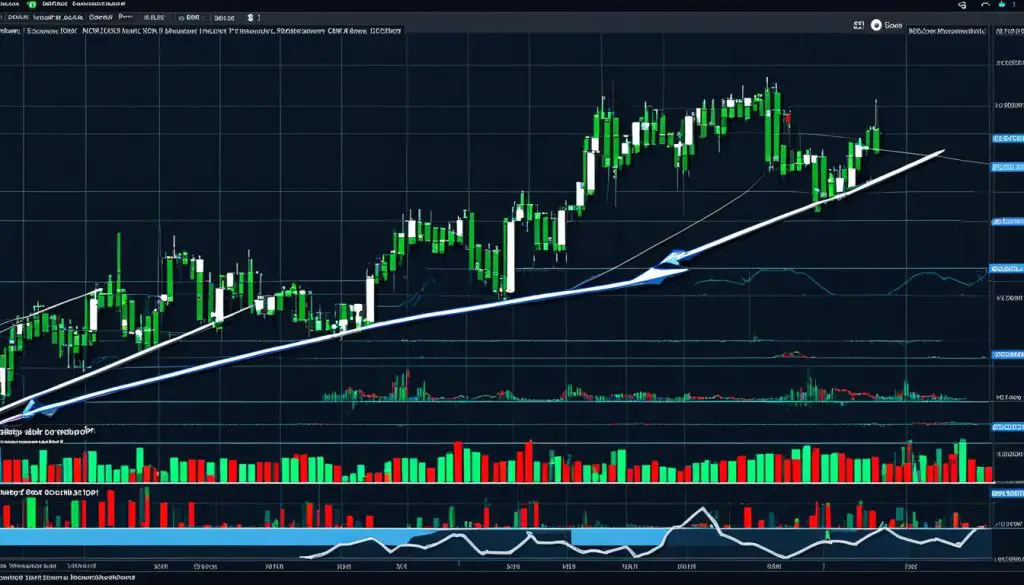Delving into the financial markets unveils a dynamic landscape where two predominant groups exert considerable influence—institutional traders and retail traders. The pivotal roles they play, though seemingly parallel, encompass divergent strategies, trading volumes, and impact. Institutional traders, the heavyweights of the marketplace, steer the financial course for entities such as mutual funds, pensions, and insurers. They operate with hefty capital, gaining preferential access to a broad spectrum of securities, from initial public offerings to complex derivatives.
The contrast becomes palpable when exploring the difference between institutional traders and retail traders. Retail traders surf the market’s waves with their personal capital, often riding shorter, more agile investment strategies. While institutional trades can shift market tides with a singular transaction, the technological revolution has armed retail traders with professional-grade tools that were once the exclusive arsenal of their institutional counterparts. Today, both cohorts of traders are indispensable to the liquidity and vitality of the markets, each with their own set of advantages and limitations.
An Overview of Trading Entities
The financial market landscape is rich with diversity, comprising different participants each with distinct strategies and advantages. Two primary figures stand out in this mosaic: retail traders and institutional traders. They differ not just in scale but also in methodology, access to information, and market influence.
Defining Retail Traders
Retail traders are individuals who trade with their personal capital, aiming to grow their wealth through investments in stocks, bonds, options, and futures. The technological revolution in trading platforms has recently democratized access to high-level trading tools, thus amplifying retail trading advantages. With these tools, retail traders can optimize their trade executions and enhance their market analysis, grinding down the edge once exclusively held by larger entities.
Understanding Institutional Traders
In contrast, institutional traders represent financial entities such as mutual funds, pension funds, and hedge funds. With significant capital, they wield sophisticated strategies that include the use of derivatives and block trades. The institutional trading advantages extend to deep fundamental analysis and insights into trading psychology, backed by robust research resources. Trading in larger volumes grants them a certain heft, capable sometimes of even steering the market sentiment.
| Aspect | Retail Trader Advantages | Institutional Trader Advantages |
|---|---|---|
| Capital Outlay | Lower capital requirement | High capital for diverse investments |
| Market Influence | Limited direct market impact | Potential to move market prices |
| Access to Tools | Advanced retail-level platforms | Proprietary tools and in-depth research |
| Trading Strategy | Flexibility in strategy choice | Complex strategies and large-scale trades |
| Market Information | Public information and data analytics | Exclusive research and expert analysis |
Whether it’s the agility of retail traders or the might of institutional ones, the markets thrive on the interplay of their unique advantages. Understanding these entities is crucial for anyone looking to navigate the financial markets or pit their wits against these trading behemoths.
The Trading Advantages for Institutional Entities
When evaluating the landscape of financial trading, it’s evident that institutional traders operate with distinct advantages. The sheer institutional trading volume and the ability to negotiate trading fees set these entities apart from their retail counterparts. Large financial institutions typically manage enormous trading volumes daily, which grants them leverage in negotiations, resulting in reduced costs on a per-transaction basis.
Institutional entities’ capacity to delve into a more diverse array of securities not readily accessible to retail investors, such as private placements and sophisticated derivatives like forwards and swaps, is another cornerstone of their trading strategy. These securities are often traded in what is known as block trades. A block trade involves a substantially large number of equities or bonds traded at an arranged price between parties, outside of the open markets, to lessen the impact on the security price.
Furthermore, institutions capitalize on their voluminous capital to diversify across a broad spectrum of investments, adding layers of hedging and risk assessment that would be unattainable for individuals. Below, we outline the direct trading cost implications for institutions versus smaller scale traders:
| Trading Aspect | Institutional Trader Advantage |
|---|---|
| Transaction Volume | Huge volume leads to bulk trade discounts |
| Market Impact | Structured trades to minimize buy/sell effects |
| Access to Securities | Ability to engage in markets for forwards, swaps, and block trades |
| Negotiation Leverage | High volume gives power to negotiate lower trading fees |
Behind the scenes, institutional traders have the backing of dedicated research teams and analysts who meticulously comb through market data, providing vital insights into global economic factors, industry dynamics, and individual company performance. This depth of research enables institutions to make well-informed decisions with an eye on both short-term profitability and long-term strategic positioning.
While retail traders have made significant strides in gaining access to advanced tools and platforms, the combined factors of trading volume, negotiable fee structures, and extensive research support continue to afford institutional entities a commanding presence in the trading sphere.
Retail Trading Advantages in the Marketplace
The evolving landscape of the financial markets has democratized access to trading, empowering individual retail traders with opportunities once thought to be reserved for institutional players. The retail trading volume is on a constant rise, indicating a flourishing interest among individuals in the investment world. With equal parts opportunity and challenge, these changes are a testament to the evolution and resilience of the retail investor.
Accessibility and Flexibility
Retail traders often operate free from the liquidity constraints that institutional traders may face, enabling them to maneuver in and out of positions with relative ease and minimal market impact. This agility in the marketplace is a significant advantage, affording individuals the freedom to trade across various sectors and financial instruments. Without the tether of investment mandates or the need to move large volumes of securities, retail traders can adapt to market shifts swiftly, a luxury of scale that is less accessible to their institutional counterparts.
Technological Advancements for Individuals
Technological advancements have been a game-changer for retail traders, leveling the playing field with sophisticated trading platforms and analytical tools that were traditionally exclusive to institutional investors. These tools enhance the retail investor’s ability to dissect market trends, make informed decisions, and execute trades with precision. From advanced charting software to algorithmic trading capabilities, technology empowers retail traders to engage with the markets on a more profound and effective level.
The following table provides insight into the key technological tools that have revolutionized the retail trading experience:
| Technology | Description | Impact on Retail Trading |
|---|---|---|
| Mobile Trading Apps | User-friendly platforms for trading on-the-go | Increased accessibility and spontaneity in trading |
| Automated Trading Systems | Algorithms executing trades based on preset criteria | Enhanced precision and time efficiency |
| Real-time Market Data | Instant access to global financial news and price movements | Better informed decision-making |
| Virtual Trading Platforms | Simulated environments for practice and strategy development | Risk-free experimentation and learning |
These tools not only equip retail traders with robust resources for navigating the markets but also foster a greater understanding of trading principles, ultimately contributing to more substantive retail trading volume. As these technological advancements continue to evolve, they promise to usher in an era where individual traders can engage with the marketplace on an even more sophisticated level.
Comparing Institutional vs Retail Trading Volume
The distinction in trading volumes between institutional and retail traders is stark and significant, with implications for market dynamics. When we speak of institutional vs retail trading volume, we are contrasting the heavyweight punches of the market’s giants with the more agile jabs of individual investors. Institutional traders commonly engage in block trades, often exceeding 10,000 shares, to leverage their large capital pools and exert a considerable influence on stock prices. Their trades are strategically distributed amongst various brokers or over time to discreetly integrate their sizable orders into the market without precipitating sudden price shifts.
Retail traders, by contrast, are characterized by their smaller, more nimble trades, typically in round lots of about 100 shares. These trades rarely move the market needle in the way institutional trades do, allowing retail traders to operate under the radar of larger market currents. They often favor small-cap stocks, an approach that complements their pursuit of a diversified investment portfolio. The size of their trades facilitates flexibility and the ability to swiftly pivot as market conditions evolve.
In analyzing institutional vs retail trading volume, one must consider the challenges institutional traders face when managing significant cash positions in smaller-cap companies. The risk of inadvertently acquiring a controlling interest or disrupting market liquidity necessitates a bias towards higher market capitalization stocks. Retail traders face no such constraints, as their individual trades lack the heft to shift market dynamics significantly, allowing them a broader spectrum of investment opportunities that align with their financial strategies and risk tolerance.
FAQ
Institutional traders manage securities for financial entities such as pension funds and mutual funds, trading large volumes with access to a broader range of assets and advanced market research. Retail traders, on the other hand, are individual investors trading on personal accounts, often in smaller volumes, with recently improved access to advanced trading tools and platforms. Their strategies can be diverse, but are typically more limited in scale when compared to the large moves made by institutional traders.
Retail traders generally do not have the same level of capital, access to certain securities, or influence on market prices as institutional traders. However, they do compete in the sense that they can respond quickly to market events and have more freedom to diversify their portfolio without worrying about large-scale market impact. While they may not match the financial leverage of institutions, the democratization of market tools and information has allowed retail traders to make more informed and strategic decisions than ever before.






